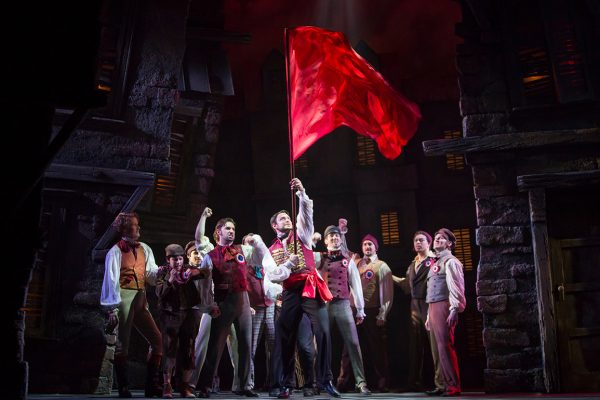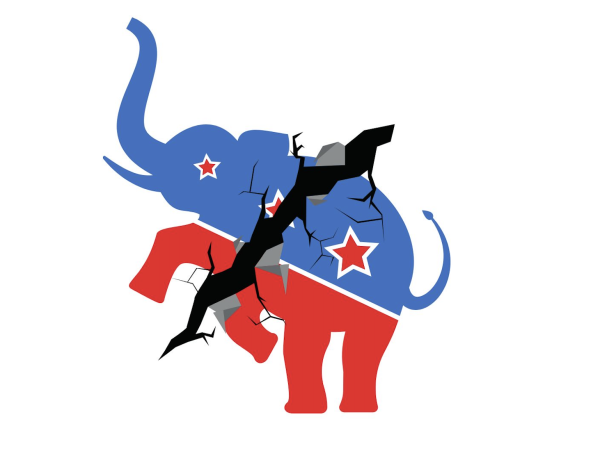Brazilian right-wing politicians are manipulating Christianity
October 8, 2022
On Sept. 9, the former president of Brazil and current candidate for the chair, Lula, spoke for more than 28,000 Evangelicals in Rio de Janeiro. At the rally, one of the pastors claimed that the “enemies of God had assumed control of the nation, but in the name of the Lord, that soon would end” mentioning an imminent victory of his. A few days later, Jair Bolsonaro, the far-right president seeking reelection, was received with a standing ovation as he rose to the stage in an Assembly of God in Sao Paulo. There, he conferred how in the second round of the elections, the battle would be over with his victory “in the name of Jesus.”
Intrinsically, Christianity has become a tool of power since the Roman Empire. That said, politicians have always flirted with faith to gain votes and candidates usually participate in religious ceremonies during elections. But what is observable in Brazil and resonates around the world, is how in recent years the abuse of the faith’s followers has become saturated. Moreover, the discourse about candidates in churches has been refined in a more “messianic” way despite the political side, dividing the nation on an “us versus them” mindset.
After 14 years of a leftist government headed by Lula, Brazilians were met with high inflation, two corruption scandals and dissatisfaction with the government. The opposition made mostly of right-wing parties saw an opportunity to overcome the Workers’ Party administration. But they had to choose a good representative for it, someone who could reflect Brazilian beliefs and support its demands against the left.
Parallel to that, in 10 years, Evangelicals grew five times more than the Brazilian population: 61.4 percent against 12.3 percent. Public representatives quickly understood the importance of the evangelical elector, representing a new Brazil that began to take shape in the form of conservativism against many leftist ideologies and liberals. It is at this defining moment that Mr. Bolsonaro appears.
Famous for polemic opinions about minorities and opposing gun control, he was the one who could get a shot at defying the “communist threat” which apparently surrounded Brazil. Likewise, religious leaders sought the sympathy of the candidate who called himself somewhat Christian, as he defended religious guidelines, such as a “traditional family,” pro-life policies and tax-free temples. Considered an outsider for such opinions, Bolsonaro rose to power in 2018, primarily because of the Evangelical electorate. Some were against this endorsement from the movement, but both sides were intertwined during that year.
Opposition grew during his administration, marked by a disastrous response to the pandemic. Lula saw an opportunity to get back to power. One strategy of his was to replicate Bolsonaro’s religious approach to Christians. Always emphasizing his Catholic background and being photographed praying and alongside religious leaders, Lula implemented this very unethical course of action just like his adversary. The consequence of this is a very subtle division among churches. The great majority still supports Bolsonaro, but Christians standing next to Lula have increasingly shown up as well. These two poles are in a never-ending battle to claim whose side is right with the Word of God.
In the middle, are believers who couldn’t care less about both candidates finding both terrible representatives. For them, the church is a place for the expression of faith and spirituality as it always has been. Political figures are welcomed at the temples but are challenged to come outside the election period. This new stance seems to defend the obvious, but that simply shows how unhealthy the relationship between church and state can be. It is damaging for all of those outside the belief system, but it also makes the religion something grotesque, full of hatred for others, losing the sense of empathy and mercy.
Christianity in Brazil has given so much to society as a social cause and a spiritual refuge. It has shaped the nation for centuries by Catholics and now by the Evangelicals. But the latter is eccentric: it is plural with many branches among itself. Those who think the new Brazil looks like an old white man like Bolsonaro and Lula are wrong. This new face is made by the majorities in Brazil who since the beginning have been used as a totem to gain every electorate while being marginalized and oppressed. This new face is a black woman from the favelas, devoted to a real Christianity. She is committed to social equality among all people and against every type of discrimination and injustice. The heart of the issue seems to be that religion is being utilized as a device in politics rather than an entity of hope. If political parties want to reign over, they must understand what they are dealing with first.












